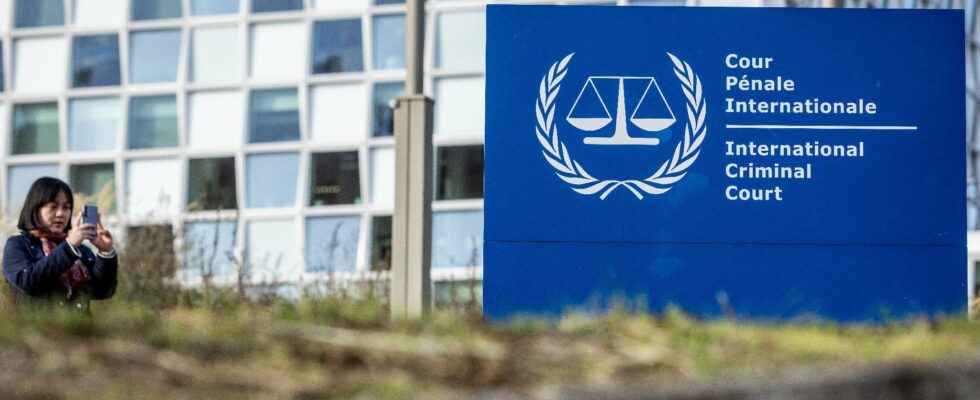By invoking on Wednesday November 27 “the immunity” from which Israeli Prime Minister Benjamin Netanyahu, targeted by an arrest warrant from the International Criminal Court (ICC), would benefit, Paris raises numerous questions and attracts strong criticism from jurists and of NGOs.
The ICC created a shock wave by announcing, on November 21, two arrest warrants for war crimes and crimes against humanity against Benjamin Netanyahu and his former defense minister Yoav Gallant. A decision which immediately aroused the fury of Israel, which appealed the Court’s decision on Wednesday. Israel is in any case not a signatory to the Rome Statute, and thus does not recognize the legitimacy of the ICC.
Very quickly pressed with questions to know if the Israeli leader would be arrested in the event of his presence on French territory, the government of Emmanuel Macron is the first, and for the moment the only one of the 124 signatory states of the Rome Statute to have mentioned an “immunity”. Italy and the United Kingdom immediately announced that they would respect their commitment to the ICC. Paris has, however, been repeating for several days that France “will respect its international obligations”, but Jean-Noël Barrot’s Ministry of Foreign Affairs highlighted in a press release that the Israeli Prime Minister could benefit from “the immunity of non-party States to the ICC”.
A gray area introduced by article 98
What immunity is France talking about? French diplomacy invokes the obligations provided for in international law linked to “immunities of States not parties to the ICC”, that is to say States which have not signed the Rome Statute and do not recognize the Court. Which is the case with Israel. France assured that “such immunities apply to Prime Minister Benjamin Netanyahu” and “must be taken into consideration”.
And what does the International Criminal Court say? Article 27 of the Rome Statute, which established the ICC in 1998, nevertheless stipulates that “the official capacity of head of state or government in no case exempts from criminal responsibility under this Statute”. “Immunities or special procedural rules which may attach to the official capacity of a person, under domestic law or international law, do not prevent the Court from exercising its jurisdiction over that person “, even specifies this text.
Article 98, on the other hand, introduces an exception concerning the arrest and surrender of officials from non-ICC member states, as is the case with Israel, and opens the way to interpretations. “The Court cannot pursue the execution of a request for surrender or assistance which would force the requested State to act in a manner incompatible with its obligations under international law in matters of State immunity or immunity diplomatic action of a person or property of a third State, unless the cooperation of this third State is first obtained with a view to lifting the immunity” states the text. It is on this article that the French position is based in particular.
France triggers the ire of lawyers and NGOs
In response to this more than controversial position taken by France, lawyers refer to several decisions of the ICC, including one on October 24. Seized of the refusal of Mongolia, a signatory to the Rome Statute, to arrest Russian President Vladimir Putin while he was on its territory, the Pre-Trial Chamber of the ICC reaffirmed that “personal immunity, including that of heads of state, is not enforceable before the ICC. States “parties” have the duty to arrest and surrender persons subject to an ICC arrest warrant, regardless of “their nature.” official position or nationality. In 2017, the Pre-Trial Chamber rendered a similar decision concerning South Africa, a state “party” to the ICC, which had not arrested Sudanese President Omar al-Bashir on its territory in 2015.
Neither Russia nor Sudan are “state parties” to the ICC, but France has never publicly raised the question of the immunity of these leaders. Paris even welcomed an “extremely important” decision when issuing the arrest warrant against Putin. “France cannot have one position with Putin and another concerning Benyamin Netanyahu,” said Balkees Jarrah, specialist in international justice at Human Rights Watch, denouncing a “shameful à la carte policy” from Paris.
For the France director of HRW, Bénédicte Jeannerod, the French position is therefore “deeply shocking”. An observation on which other specialists agree, for whom the positioning of Paris does not hold up. “There is an unambiguous legal obligation for any State party to the Rome Statute to execute ICC arrest warrants,” says Me Clémence Bectarte, a specialist in international criminal law, who adds that “the obligation vis- vis-à-vis the ICC takes precedence over any other obligation or consideration. Amnesty International for its part insists on “the fundamental obligations of France as a State party to the ICC”. “ICC arrest warrants are not negotiable,” denounces FIDH, for whom the French decision “dangerously weakens international law.”
